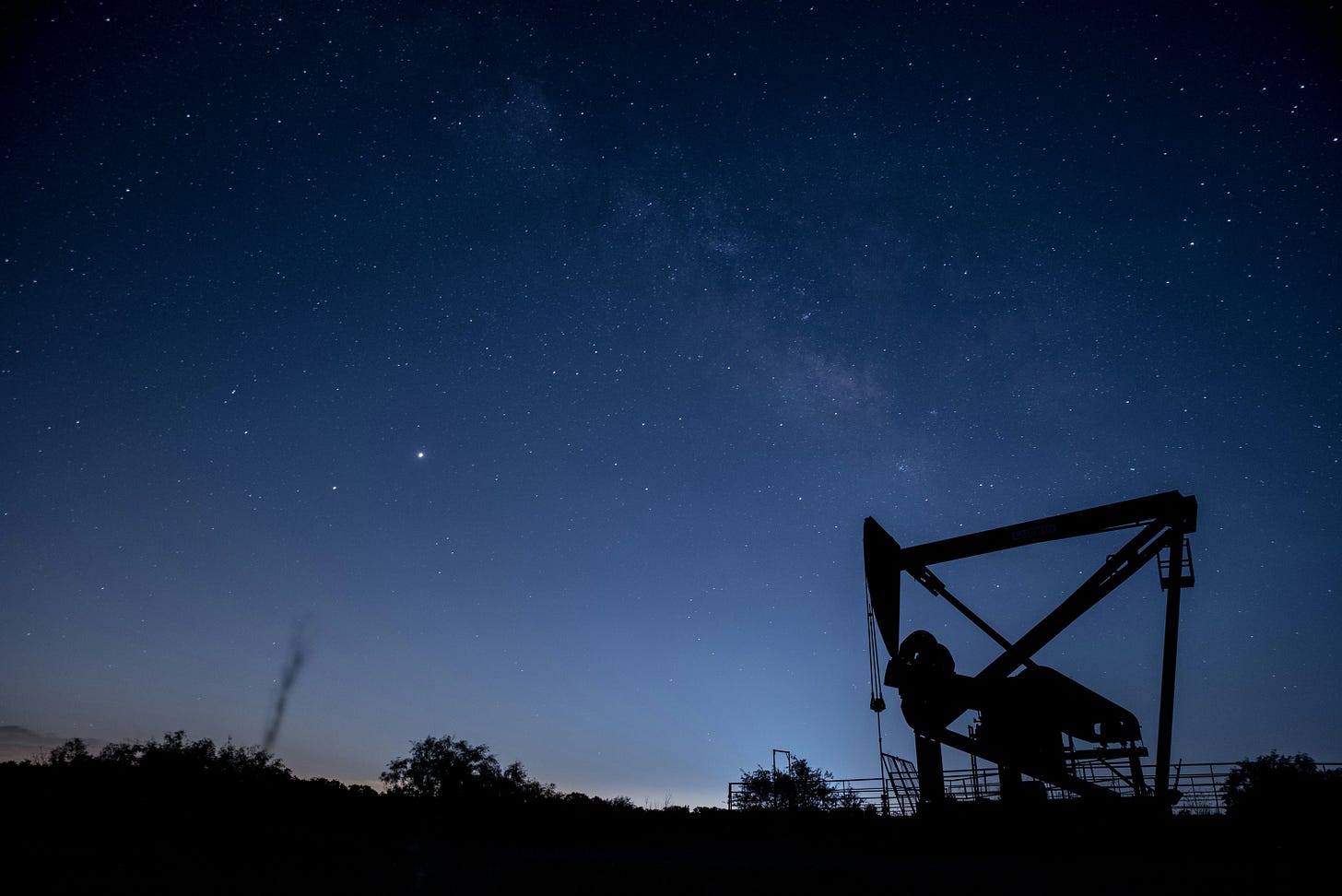
The fight for a cleaner, healthier, safer—and liveable—future feels like a tug of war sometimes. Stalling and backsliding are all a part of the tussle. But so is progress, and steps in the right direction, too.
While it’s dismaying that SB 252, The Fossil Fuel Divestment Act, has been stymied in the Assembly and faces an uncertain future1, there was MUCH happier news recently for another of Sen. Lena Gonzalez’s bills.
This one, SB 1137, mandated “setbacks” or buffer zones between new fossil fuel drilling operations and “sensitive receptors.” Although it became law back in 2022, it had been languishing in unenforceable limbo because the oil and gas industry had gathered enough signatures to get a measure aimed at overturning it put on the ballot for the November 2024 election.
A few days ago, though, “California’s oil industry withdrew its controversial ballot measure challenging a state law that imposes new restrictions on oil and gas wells within 3,200 feet of homes and schools” (per CalMatters).
From CalMatters:
Environmentalists consider the industry’s decision a major victory because it removes the obstacle to a law that bans new drilling and imposes safety restrictions on existing wells in communities.
…
The ballot measure would have asked voters to overturn a 2022 law, authored by Sen. Lena Gonzalez, a Democrat from Long Beach, that established buffer zones in neighborhoods. The law bans new oil and gas wells in those areas near homes, schools and other “sensitive” areas such as hospitals. In addition, operators of existing wells must take steps to improve their safety, such as installing leak detection equipment, testing water and controlling dust and other pollutants.
The state’s setback rules will now take effect. Operators of existing wells within the buffer zones must develop safety plans by 2025 and implement them by 2027.
…
The health risks from oil operations have been at the heart of a decades-long campaign to shield families, schoolchildren and the elderly from the impacts of drilling. The growth of the oil and gas industry in many regions predated California’s sprawling growth, meaning it is not uncommon to find drilling and refining across the street from subdivisions.
More than 2.5 million Californians live within 3,200 feet of an oil or gas well. Those neighborhoods are predominantly low income — nearly 70% non-white — disproportionately saddling communities of color with decades of health impacts.
“Heart disease, respiratory emergency, pre-term developmental impacts, miscarriages,” said Mabel Tsang, political director for the California Environmental Justice Alliance. “It’s generations of families with cancers, it is people who saw their childhood friend pass away because of oil drilling. A cradle to grave cycle.”
Read the rest of the CalMatters article
It’s unlikely that the referendum would’ve passed but, still, the withdrawal is GREAT news. It means that opponents of the ballot measure can turn their focus (and money and star power) towards other ways to hold the fossil fuel industry accountable. In this legislative session, bills that aim to do just that include:
AB 1866 - Hart: “Ensures that existing operators plug all idle wells in California within the next decade, increases the percentages of idle wells plugged each year, and eliminates the option to pay insignificant fees in-lieu of plugging wells.”
AB 3233 - Addis: This bill “protects the right of local governments to regulate and phase out oil and gas operations in their jurisdictions.”
SB 1497 - Menjivar: A climate superfund bill similar to the one that recently became law in Vermont
AB 2716 - Bryan: “Holds the oil and gas industry accountable by charging $10,000 per day to oil wells producing less than 15 barrels per day within a half mile of a community.2”
I was struck by a John Lewis quote shared by
in her newsletter recently. These are stirring words to take to heart even as we scroll through news reports about Supreme Court verdicts, extreme heat and wildfire risks:Ours is not the struggle of one day, one week, or one year. Ours is not the struggle of one judicial appointment or presidential term. Ours is the struggle of a lifetime, or maybe even many lifetimes, and each one of us in every generation must do our part.
Nothing can stop the power of a committed and determined people to make a difference in our society.
Take a long, hard look down the road you will have to travel once you have made a commitment to work for change. Know that this transformation will not happen right away. Change often takes time. It rarely happens all at once. In the movement, we didn't know how history would play itself out. When we were getting arrested and waiting in jail or standing in unmovable lines on the courthouse steps, we didn't know what would happen, but we knew it had to happen.
Yes: change often takes time. If this is a tug of war, I hope you’ll keep on tugging towards a fossil fuel free future. We don’t know what will happen, but, to paraphrase Lewis, we know it has to happen.
After passing the Senate, it floundered in the Assembly’s Committee on Public Employment and Retirement where a number of amendments were proposed that would’ve greatly undermined its impact. According to her website, Majority Leader Gonzalez has “decided to shelve the bill and is committed to reintroducing the legislation next year.” It made sense to do that rather than proceed with toothless version.
An amendment proposed by the author, Assembly Member Isaac Bryan, would limit the geographic scope of this bill to just the Inglewood Oil Field in LA County—California’s largest urban oilfield.



Thank you!!!